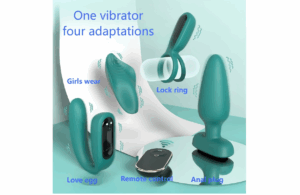🌐Over $68 Ships Free Worldwide
How Technology is Reshaping Our Sexual Selves
We live in an era where technology has reshaped nearly every facet of our lives, from how we work to how we socialize. It was only a matter of time before this digital revolution profoundly transformed the most intimate aspect of the human experience: our sexuality. Far from being a cold or impersonal force, technology, when used consciously, is becoming a powerful tool for education, connection, and self-discovery.
The first and most significant impact is in the realm of education. For generations, sexual knowledge was passed down through whispered myths, pornography, or inadequate school curricula. Today, a wealth of credible information is available. Certified sex therapists, educators, and medical professionals run blogs, podcasts, and social media accounts, debunking myths and providing evidence-based advice on everything from consent and communication to managing low libido and exploring kink safely. This democratization of knowledge allows individuals to learn about their bodies and desires from the comfort and privacy of their own homes, reducing shame and fostering a more positive self-image.
Secondly, technology has revolutionized the tools of pleasure. The old stereotype of the loud, garish, and poorly designed sex toy is rapidly fading. The modern pleasure tech industry, often called “Femtech” when focused on women’s health, prioritizes aesthetic design, body-safe materials, and innovative engineering. We now have products that can be controlled remotely by a partner thousands of miles away, fostering intimacy across distances. Apps sync with smart devices, allowing users to create and share custom vibration patterns. This isn’t about replacing human touch; it’s about augmenting and enhancing it, offering new ways for couples to connect and for individuals to explore their personal “pleasure map” with unprecedented precision.
However, this digital frontier is not without its challenges. The prevalence of mainstream pornography continues to shape unrealistic expectations about bodies, performance, and pleasure itself. The key is digital literacy—learning to differentiate between entertainment and education, and understanding that porn is a fantasy, not a instructional manual. Furthermore, the rise of dating apps has created a “paradox of choice,” which can sometimes lead to transactional attitudes towards sex and partners. It has also introduced new dimensions to communication, requiring a new vocabulary for negotiating consent and boundaries via text.
The future of digital intimacy is leaning towards even greater personalization. We are seeing the emergence of AI-driven platforms that can offer tailored advice and exercises for couples, and virtual reality experiences that could offer new avenues for therapeutic treatment of sexual issues. The core of this revolution, however, remains deeply human. Technology is merely the tool. The goals are still connection, understanding, pleasure, and health. By embracing these tools with intentionality and critical thinking, we can harness the digital revolution to foster more informed, confident, and fulfilling sexual lives, breaking down the walls of silence and shame that have limited us for far too long.




